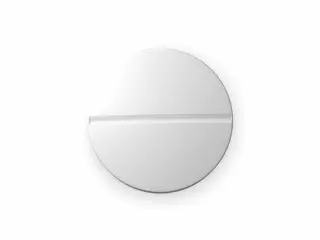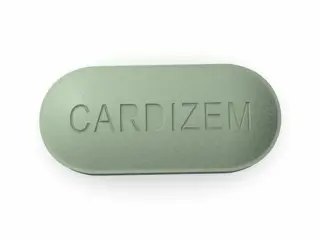Cardiovascular
Find a wide selection of cardiovascular medications designed to support heart health, manage blood pressure, and improve circulation. Shop trusted brands and effective treatments to maintain your cardiovascular wellness.
The cardiovascular category includes medications designed to treat heart and blood vessel conditions. These drugs help manage blood pressure, heart rhythm, and clotting. They are essential for patients with hypertension, arrhythmias, heart failure, and risk of stroke or heart attack. Below is a review of some popular medications in this category.
Altace is an ACE inhibitor. It lowers blood pressure by relaxing blood vessels. This helps improve blood flow and reduce the heart's workload. Altace is commonly used to treat high blood pressure and heart failure. It can also reduce the risk of heart attack or stroke in some patients. Side effects might include cough or dizziness, but it is generally well tolerated.
Cardarone (Amiodarone) is used to manage serious irregular heartbeats. It helps stabilize the heart rhythm by controlling electrical signals. Cardarone can be quite effective for arrhythmias but requires close monitoring. It may cause side effects like thyroid problems, lung issues, or skin sensitivity. Regular medical check-ups are important while on this medication.
Cardizem (Diltiazem) is a calcium channel blocker. It relaxes the muscles of the heart and blood vessels. This helps reduce high blood pressure and control heart rate in arrhythmias. Cardizem is often prescribed for angina and hypertension. Common side effects can include swelling, headache, or dizziness.
Cartia XT is another form of diltiazem, available as an extended-release tablet. It allows for once-a-day dosing, improving convenience and adherence. Like Cardizem, Cartia XT is used for angina and hypertension and works by relaxing blood vessels and reducing heart workload.
Cordarone is another name for amiodarone, identical to Cardarone. It treats life-threatening ventricular arrhythmias. Due to its potential for serious side effects, it is usually reserved for severe cases. Monitoring liver function, lung health, and thyroid levels is necessary during treatment.
Coumadin (Warfarin) is an anticoagulant. It prevents blood clot formation, reducing the risk of stroke and heart attack. Coumadin is critical for patients with atrial fibrillation or after certain surgeries. The drug requires blood tests to monitor its effect and dose adjustments. Dietary restrictions and drug interactions must be managed carefully to avoid bleeding complications.
Lanoxin (Digoxin) strengthens heart contractions and controls heart rate. It is mainly used in heart failure and atrial fibrillation. Lanoxin helps the heart pump more efficiently. Side effects can include nausea, dizziness, and visual changes, especially if levels in the blood become too high.
Lisinopril is an ACE inhibitor like Altace. It reduces blood pressure and protects the kidneys, especially in diabetic patients. Lisinopril improves heart function in cases of heart failure as well. The medication is widely used and generally safe with common side effects such as cough and increased potassium.
Micardis (Telmisartan) is an angiotensin receptor blocker (ARB). It lowers blood pressure by blocking a hormone that tightens blood vessels. Micardis is often chosen when ACE inhibitors cause cough. It helps reduce the risk of stroke and heart attack. Side effects are similar to ACE inhibitors but usually milder.
Nimotop (Nimodipine) is a calcium channel blocker. It is used mostly to prevent brain damage after a stroke caused by bleeding in the brain. Nimotop works by relaxing blood vessels and improving blood flow to the brain. Its use is specialized and is usually managed in hospital settings.
Plavix (Clopidogrel) is an antiplatelet drug. It prevents blood cells from sticking together and forming clots. Plavix is commonly prescribed after a heart attack or stent placement. This drug reduces the risk of future heart attacks and strokes. It must be taken regularly and can increase bleeding risk.
Samsca (Tolvaptan) is a vasopressin antagonist. It is used to manage low sodium levels caused by heart failure or liver disease. Samsca works by allowing the body to remove excess water while keeping sodium levels steady. It is usually prescribed in hospitals and requires close monitoring.
Overall, cardiovascular medications vary widely in their action but share the goal of improving heart and vessel health. From blood pressure control to clot prevention and heart rhythm stabilization, these drugs play a vital role in managing cardiovascular diseases. Patients must follow prescribed dosing and attend regular follow-ups to ensure effectiveness and safety.














